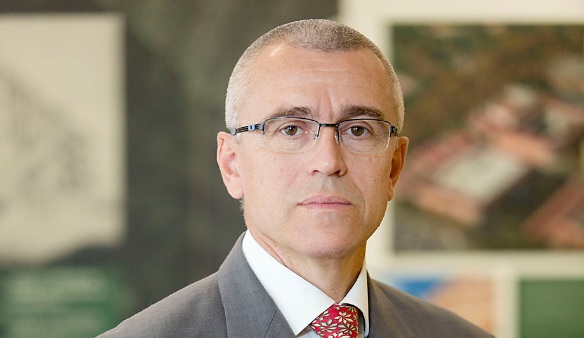The fate of universities
The fate of universities

My university, Pompeu Fabra University, is an outstanding institution in the social sciences and humanities that has seen exceptional growth over the last 15 years in the areas of biomedicine and ICT. Suddenly, overcome by the impact of human activity on the planet’s natural systems and the growing social inequalities, and perhaps, too, to shake off the anaesthetizing effects of the unbelievable and unacceptable local and global political crisis, it has chosen to embrace the challenge of planetary wellbeing. It has thus undertaken a firm commitment to the idea of mutual belonging between the health and wellbeing of people and the health and wellbeing of the planet. It accepts this challenge as both a desire and an academic reality that links a considerable part of the effective and highly qualified work of the UPF community to our institution’s fate.
Such a commitment, based on a recognition of what is global, is not made without a very high awareness of location; it requires an analysis situs of UPF in Barcelona. Just as they were more than a century ago, Ciutadella Park and its surroundings are once again called upon to serve as a linchpin for the city’s urban organization and the image it offers the world. The denarii must be put to work, and the currency of beauty and the commercial economy is perfectly compatible with that of a Barcelona that draws on the idea of a European city of culture and knowledge to overcome the enormous and inexplicable scar of the França Station railway yard and the wall that rims the zoo and runs the length of Carrer Wellington. This scar, which contains the Parliament of Catalonia and leaves the sea, Hospital del Mar, the Barcelona Biomedical Research Park (PRBB) and UPF all absurdly removed from downtown Barcelona, clearly separates the thriving Born neighbourhood from the unfortunately stagnant Nova Icària district. In my view, it merits at least as much discussion as the planned tram extension on Avinguda Diagonal. It, too, should be an opportunity to rethink and remake the city in a way that firmly embraces sustainability and social inclusion. The contribution of Barcelona to the planetary well-being.
Suddenly, overcome by the impact of human activity on the planet’s natural systems and the growing social inequalities, and perhaps, too, to shake off the anaesthetizing effects of the unbelievable and unacceptable local and global political crisis, it has chosen to embrace the challenge of planetary wellbeing
I do not know the fate of universities, nor do I claim to. There are some who predict, based on very sound arguments, that only exceedingly good universities will survive the current era, the ones that manage to offer teaching based on irreplaceable face-to-face exchanges and boast a culture of respect for tradition, as well as world-class innovative and productive research to inform that teaching. This is because today’s era believes that university knowledge in general is being shown not to be the exclusive purview of universities at all.
If, on the other hand, fate is understood in terms of forced servitude, then I would say I know a bit more. I know, for example, that lawmakers and administrators will, as they say, stick their noses into every aspect of a university’s business. And when a system does not endow someone with sufficiently serious responsibility, that person will not be held accountable for anything important. Universities will not be able to freely select their teaching staff or students. They will not be able to manage their resources from a long-term perspective; every year, they will hit absolute zero. Nor will they be able to determine how they are governed internally, even though every four years they will elect a rector by universal suffrage.
The aim is not only to improve the numbers, but also to acquire the right orientation, to focus our energies on the health of the planet and the wellbeing of humanity
This second type of fate greatly hinders the acquisition of skills that go beyond compliance ad nauseum with quality regulations and laws characterized by an oppressive and mistrustful attention to detail. However, the time has come to brush off the cobwebs. Leibniz formulated metaphysical optimism as an optimization of the possible world; Voltaire made it digestible for human naivety. These philosophers are entirely valid and current today. They offer shots of courage to face the challenge of the future and try to establish a profile: UPF Planetary Wellbeing. The aim is not only to improve the numbers, but also to acquire the right orientation, to focus our energies on the health of the planet and the wellbeing of humanity. This poses challenges in various areas of knowledge: from health and biology to politics, economics, humanities, engineering, law or communication.
A coda. No matter how fashionable it may be to conceive of universities as rival clubs ridiculously pitted against each other and awash with envy and gossip, UPF cannot afford to be a club that is intolerant and exclusive of other clubs’ supporters. From this day forwards, our Ciutadella campus thus invites all the other clubs (universities, research centres, foundations, hospitals, NGOs and governments, even friends and political parties) to choose this same fate, in case it is ultimately ours or theirs.
